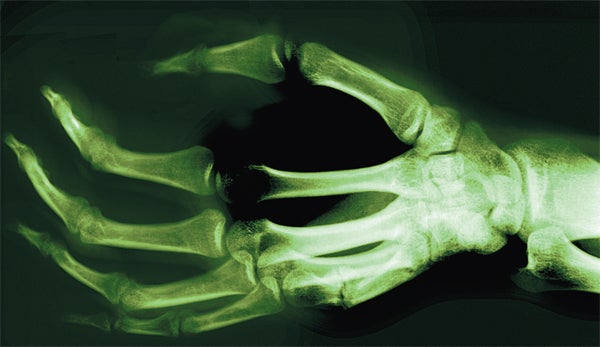
What courses? Osteopathy
What do you come out with? BSc, BOst or Most.
Why do it? "If you have a fascination with the structure and function of the human body, and are looking for an interesting, varied and flexible clinical career, where you can make a real difference to the lives and health of patients, then osteopathy may be the choice for you. Many students like the thought of osteopathic practice which attempts to get to the root of a patient’s problem, rather than just treating symptoms. You may also like the opportunity, which osteopathy provides, of being your own boss and setting up your own practice. Whatever your motivations, osteopathy provides a rewarding and stimulating career." - Steven Bettles, vice principal (osteopathic), European School of Osteopathy
What's it about? Osteopathy is a branch of alternative medicine that emphasises the interrelationship between structure and function of the body and recognises the body's ability to heal itself. When studying for a degree in osteopathy, you will cover techniques, biomedical sciences, anatomy, rheumatology and pharmacology, so that you can build up the general skills needed to practice osteopathic medicine. Students will also build up knowledge of research methods. The European School of Osteopathy (ESO) takes a broad approach, starting off with a combination of basic sciences, such as anatomy and physiology, and osteopathic theory and practice. Its main aim is to preserve the philosophy and principles of osteopathy and to develop a wide range of osteopathic techniques via an eclectic teaching body. Some courses, such as the one of Oxford Brookes, will also allow you to explore osteopathic practice in a variety of clinical contexts, such as obstetric, paediatric and sports care.
Study options: You’ll be looking at a four year course including lots of clinic-based learning. Assessments will be practical, theoretical and clinical. There will generally be more written assessment in the first year and more practical assessment later on. At the European School of Osteopathy students will be asked to complete a research dissertation at the fourth year.
What will I need to do it? It’s BBC at the British College of Osteopathic Medicine, including A-levels in chemistry and biology. NESCOT requires CCC including two science-based subjects, while Oxford Brookes requires BBB including biology or human biology. The European School of Osteopathy and the British School for Osteopathy asks for a BBC and scientific subjects at A-level.
What are my job prospects? It’s a vocational degree, so you’ll be set. Osteopathy is not yet integrated into the NHS, so most graduates go into private practice. At some stage there should be greater collaboration with the NHS, however. As a result osteopaths tend to be self-employed; either by setting up their own practice, or by joining up with an associate. BCOM graduates can work in the NHS, but the majority go into private practice. The average starting graduate salary in this sector is around the £21,000 mark.
Where’s best to do it? The Complete University Guide 2012 puts Oxford Brookes at the top of “other subjects allied to medicine”, followed by Swansea among the universities where you can take an optometry course. Colleges specifying in Osteopathy such as the British College of Osteopathic Medicine, British School of Osteopathy and European School of Osteopathy also fare well, but are not included in the Complete University Guide.
Related Courses: Medicine; dentistry; pharmacy and pharmacology; nursing; health and social care.
Subscribe to Independent Premium to bookmark this article
Want to bookmark your favourite articles and stories to read or reference later? Start your Independent Premium subscription today.

Join our commenting forum
Join thought-provoking conversations, follow other Independent readers and see their replies